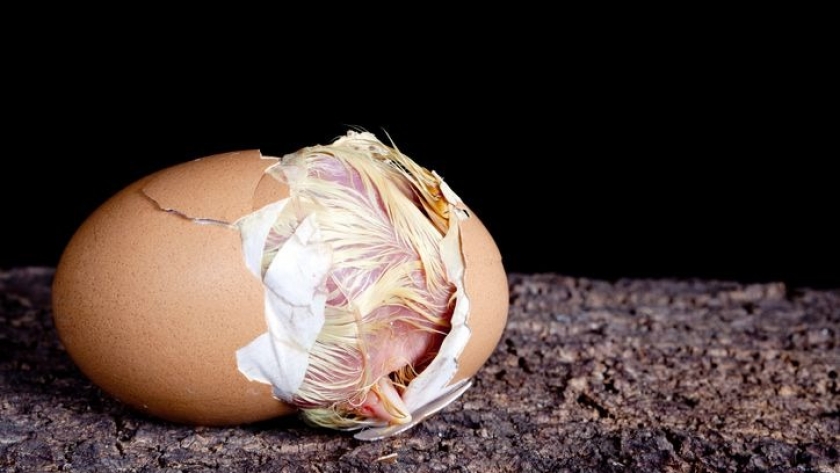
By Agroempresario.com
NestFresh Eggs, one of the leading egg producers in the United States, has taken a significant step toward transforming the egg industry by celebrating the first hatch of sexed chicks in the country. This breakthrough, achieved at Hy-Line North America's hatchery in Iowa, marks the beginning of a new era for more ethical egg production, eliminating the controversial practice of culling male chicks at birth, which has been standard in the industry.
In-ovo sexing allows hatcheries to identify the sex of chicks before they hatch, preventing the culling of males, who are not needed for egg production. NestFresh has adopted this technology, developed by German company Agri Advanced Technologies (AAT), which uses hyperspectral imaging to analyze the egg shell and determine the sex of the embryos. This technique is less invasive and faster compared to other traditional methods.

NestFresh has announced plans to transition its entire egg line to this new process, with eggs from sexed chicks set to be available in the market by July 2025. Consumers will be able to recognize these products by the Certified Humane certification, granted by third-party welfare auditor Certified Humane, which ensures that the eggs come from a process that respects animal welfare.
Mike Sencer, Executive Vice President of NestFresh, emphasized the significance of this technology for the industry. "Our adoption of in-ovo sexing technology marks a pivotal moment in the egg industry," he said. "While many companies have announced plans to adopt in-ovo sexing technologies, NestFresh will be the first to implement this technology and bring in-ovo sexed eggs to the U.S. market" (quote taken from the original article).

Although the adoption of this technology represents a significant ethical advancement, questions remain regarding its commercial viability, especially given the rising costs that consumers face in their daily grocery bills. Sencer explained that the additional cost per sexed chick is relatively low, at $1.50 extra per chick, which results in only a slight increase in the price of eggs per dozen. However, he is confident that this innovation will gain traction among consumers interested in ethically sourced products.
In-ovo sexing technology is gaining momentum in Europe, where several countries have implemented regulations prohibiting the culling of male chicks. In the U.S., the process has progressed more slowly, mainly because there is no similar regulatory pressure. However, its adoption in the high-end egg market could accelerate acceptance across the country, especially among consumers who prioritize animal welfare.

The implementation of these technologies is seen as a fundamental shift in egg production, not only for ethical reasons but also for their commercial potential. The move to a system that eliminates the culling of male chicks is gaining support from various industry players, including animal welfare groups, who have praised NestFresh for taking a stand on a widely criticized practice.
The path to a more responsible egg industry is being paved, with NestFresh at the forefront of this technological innovation.
